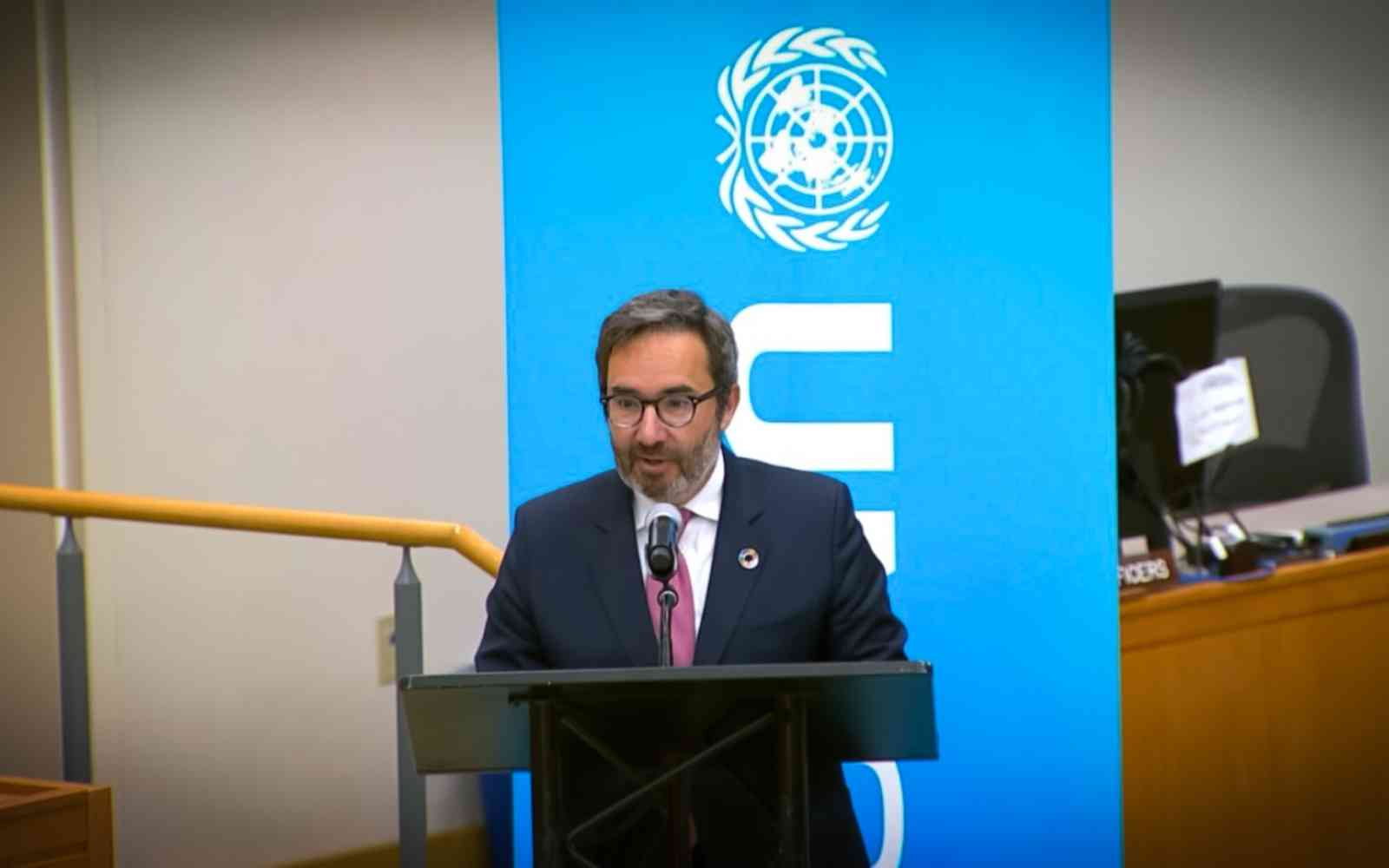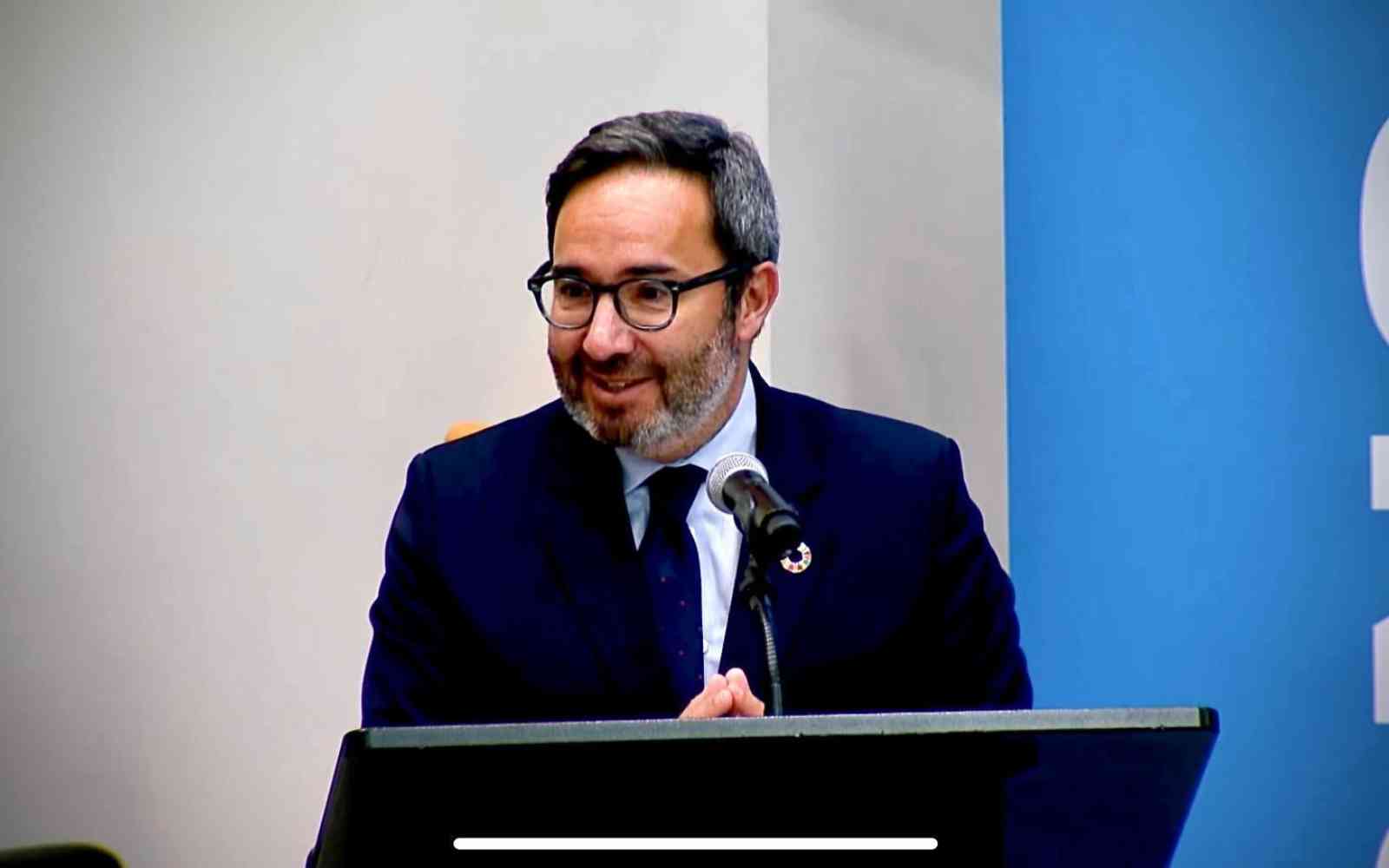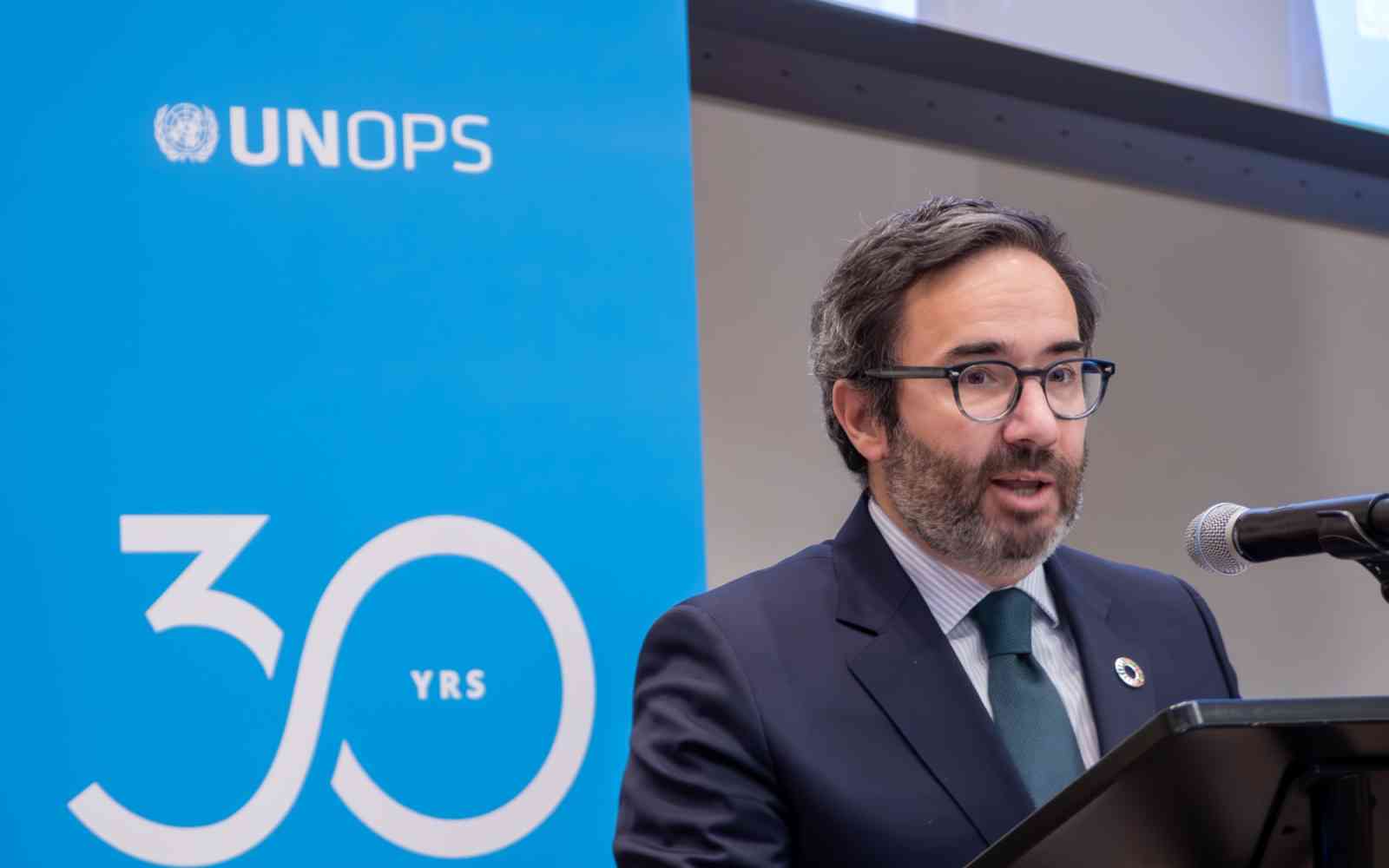The United Nations Office for Project Services (UNOPS)
Statement to the Second Regular Session of the Executive Board 2020
Statement by Grete Faremo, Under-Secretary-General and Executive Director of UNOPS, to UNDP/UNFPA/UNOPS Executive Board First Regular Session – 1 September 2020
[Check against delivery]
Mr. President, Honourable representatives
I am sorry that I cannot meet you in person today. I truly miss your personal comments and advice before, during and after these meetings. But I am glad we can connect virtually, the way we now are all too familiar with.
COVID-19
I want to start by conveying my condolences to everyone who has been affected by COVID-19.
Particularly the families, friends and colleagues of all of those who have passed. At UNOPS, we have sadly lost two colleagues. They will forever remain in our memories.
In these unprecedented times, I am proud of the dedication and commitment of UNOPS personnel, especially those working in extreme and unpredictable situations, to assist nations in their public health response and economic recovery projects.
As of today, UNOPS will deliver over $400 million worth of projects addressing the pandemic. These projects are found in over 50 countries and funded by some 40 partners.
They include a wide range of services: From emergency response equipping health workers at the front line, building temporary health infrastructure, to longer-term support for strengthening national health systems. And mitigating the negative socio-economic impacts of the pandemic.
Our partnerships range from governments, IFIs as well as other international institutions and private companies.
In my written statement already distributed to you, I provided two examples of this work from Ethiopia and Serbia funded by the World Bank and EU, respectively.
- In Ethiopia, with funding from the World Bank, we are helping to establish satellite connectivity for close to 1,500 schools across the country. This will allow students to resume learning, and to sit their national exams online.
- And in Serbia, with funding from the European Union, we will issue more than a million euros-worth of grants to public healthcare institutions across the country, to cover salaries for medical and support workers in COVID-19 hotspots.
I will not repeat the two examples, but rather add new details of what we have done on very short notice, with your support:
- In Brazil, we procured medical equipment for public hospitals and essential food for families.
- In Indonesia, funded by Korea, we procured oxygen respirators and ventilators.
- In Jordan, with US funding, we provided critical radiological equipment.
- In Sri Lanka, funded by Japan, we procured essential medical equipment.
- In Ukraine, with EU funds, we provided respirators and personal protection equipment to national police
- In Paraguay, with funding from the World Bank, we procured 50 ventilators. They were installed and are in operation in hospitals across the country,
- And in Palau, funded by the India-UN Development Partnership Fund through the UN Office for South-South Cooperation (UNOSSC), we provided air-purifying respirators.
We are also part of the UN-wide COVID-19 Supply Chain Task Force, co-chaired by WHO and WFP.
Public procurement
With fewer resources and mounting needs, we all need to do more with less. When COVID-19 first hit, countries scrambled to secure supplies. It quickly became clear that procurement processes and supply chains were nowhere near ready for a crisis of this scale. We saw low supplies, high demand and urgent need.
As governments look to build on the lessons learnt so far, be reminded that public spending can be a powerful force for change. It accounts for 15-30 per cent of GDP in most countries. Government spend has a huge potential to mitigate the economic shock of the pandemic, to create jobs, drive gender equality and reduce carbon emissions.
More resilient procurement approaches in the face of future challenges can strengthen supply chains, enhance transparency and fight corruption. Diversifying suppliers can mean businesses owned by women, young people, people with disabilities and ethnic minorities are given the same chance to recover. The approach to public procurement needs to move from transactional to transformational.
UNOPS has for years worked hard to support governments achieve their goals and will continue to step up our efforts. Importantly, we help to build the capacity of public procurement institutions, so that countries continue to reap the benefits in the longer term.
And now we are taking the next step. We have just set out on a new ground-breaking partnership with the government of Mexico and WHO, to support the national procurement of medicines.
This is UNOPS biggest public procurement project to date. We are talking of billions of dollars worth of medicines and medical supplies. Its scale speaks to our commitment to helping governments reap the benefits and realize the potential that can be achieved through improved public procurement. This will be a game-changer in Mexico’s efforts to improve transparency and value for money.
Honourable members,
My written statement, shared with you last week, provides more details about how we worked to help governments fight COVID-19. We expanded already robust partnerships. We were called on. We responded. Together we have made many lives better.
But I wanted to also take this opportunity today to reflect on some bigger questions:
Doing things differently
Mr. President, Excellencies
COVID-19 has impacted every aspect of our lives, and left unprecedented damage:
- It could knock $9 trillion off the global economy over the next two years
- It has lead to the loss of an equivalent of 400 million full time jobs
- Half a billion people could be pushed into poverty
- 60 per cent of the children are not getting the education they need, because of school closures
- 70 per cent of young people had their education disrupted due to the pandemic
- Vulnerable groups are disproportionately affected – including women and girls – risking the limited progress made so far on gender equality.
The long list of suffering goes on. Yet this is not the time for despair.
This is a time to seize opportunities; to build on lessons learnt; to improve our infrastructure and supply chains – including for health systems – to be more resilient, to be more able to withstand shocks, to adapt and to scale.
We need a recovery that goes hand-in-hand with climate action and gender equality. And a recovery that can put us back on the right path to the SDGs to create a world that is more equal, inclusive and sustainable.
The pandemic has left us with no choice but to drastically change our ways. For those of us fortunate enough to be online, it is said that the pandemic accelerated a change that was already in the air. Remote working has made business continuity possible for many.
At UNOPS we have reaped the benefits of our decision to move to the cloud, to adopt enterprise technologies, to embrace technological change.
What would this more broadly mean for a post-pandemic UN? Our world has fundamentally changed. It has implications for the future of our work.
We need to redefine leadership and how it works in a virtual world; adapt our skills and organizational cultures; and scale up our technology. We need to be more flexible to address challenges quicker and better.
This hits us as the UN turns 75. It is a timely reminder of the importance of cooperation when a crisis hits and why the UN exists. As we reimagine the future we want to see, We must mould a UN that is fit for the future.
Gender
A final point I want to expand on is gender equality.
The pandemic unfolded in a year that marks the 25th anniversary of the adoption of the Beijing Declaration and Platform for Action, a global milestone in the fight for women’s rights.
The pandemic, as we all know, has had devastating social and economic impacts on women.
- From exposing them to immense danger: 70 per cent of front line health and social workers are women
- To losing their livelihoods: nearly 60 per cent of women work in the informal economy
- They have been hit disproportionately hard:
- There is the added burden of unpaid care work
- And worse: There is increased levels of domestic violence and loss of access to sexual and reproductive health services
We all need to put gender equality at the centre of recovery efforts.
We will help to ensure equal opportunities for women owned businesses. And we will continue to push for infrastructure that is gender sensitive.
Together with UN Women, we have published new guidance on how to incorporate gender considerations into all aspects of infrastructure projects, so that we are one step closer to infrastructure that works for all.
The pandemic has also challenged our efforts to achieve gender parity within our workforce.
Gender parity remains a key priority for UNOPS.
As we speak, women represent 45 per cent of UNOPS personnel, irrespective of contract types.
So far this year, 56 per cent of our senior appointments have been women.
Our 2020 targets aim for gender parity – for women to make up 47 per cent of our personnel.
As of today, we expect this to be a challenging target to meet by the end of the year. We are currently about one per cent behind our target. COVID-19 has led to reduced recruitment levels over the recent months. But we will not lower our ambitions.
As ever, I will continue my regular updates to the Board on this topic of critical importance.
Conclusion
In conclusion, we are marking the 75th anniversary of the UN, by means of the Internet. We gather virtually at a time when we all know that we are in this together. Those words, as hollow as they may sound if used too frequently, will drive both competition and cooperation. We – the UN – are here to help cooperation prevail.
UNOPS stands ready – more determined and stronger than ever before – to support the world vision, together with our partners, of a better world for all.
Thank you.










